The study of Iran’s foreign policy and actions could be divided into two parts, before and after the 1979 revolution. In fact, the 1979 Iranian revolution should be considered the source of a great transformation and the beginning of fundamental changes in the geopolitics of the Middle East and beyond at the international level. This event had a great impact on the awakening of the Muslims throughout the world and the revival of religious beliefs.
Until 1979, Iran was considered as the most important military, political and economic partner of the United States in the Middle East. In fact, it was the front line of the United States in the Cold War era against the Eastern Bloc and the Soviet Union in the West Asian region. The Shah did not have an independent foreign policy, and decisions were made with the coordination of the U.S., and the U.S. hegemony in the Middle East was exercised through Iran. The Iranian Islamic Revolution changed everything. Before 1979, Iran had defined its security approach in the region in alliance with the West and especially the United States of America; after the revolution, it chose exactly the opposite approach. The main motto of Iran’s politics is defined in the phrase “Neither East, nor West, Islamic Republic”.
In fact, the establishment of a government based on religious and divine ideas with anti-arrogant thinking and an independence-oriented approach became the main foundation and cornerstone of Iran’s foreign policy and international actions. Article 11 of the Constitution of the Islamic Republic of Iran emphasizes that “all Muslims are one nation and the government of the Islamic Republic of Iran is obliged to base its general policy on the alliance and unity of Islamic nations and to make great efforts to achieve political, economic and cultural unity of the Islamic world.”
Obviously, this approach is in conflict with the totalitarian and colonialist policies of the West and the United States in the Middle East. Therefore, the tensions and conflicts between the Western bloc and Iran over this fundamental conflict started from 1979 onwards. So far these tensions have emerged in every stage of history in some way.
Long story short. By learning from the experience of the 8-year Iraq-Iran war (domestically known as the Sacred Defense) and the maximum and comprehensive sanctions imposed by the United States on all vital and main sectors in the country, Iran understood that there is no way to progress and deal with external threats except relying on internal capabilities and increasing military deterrence. Iran’s foreign and military policy doctrine is based on “preemptive defense” with a focus on increasing regional influence; the policy that is completely consistent with Iran’s anti-arrogance thinking.
Today, Iran, which is rich in fossil and mineral resources, and relies on indigenous knowledge and capabilities, has made significant progress in various fields, including aerospace, military, nano, nuclear technologies, etc., and these advances have been reflected in all its regional affairs. By providing its friends with its experience of years-long fighting against arrogance and colonialism in the West Asian region, Iran has succeeded in creating a group of allied countries and groups that fight for a common goals: independence and freedom.
Along with increasing military deterrence power, increasing economic power and improving political relations with friendly countries, there are other important issues that are pursued in Iran’s foreign policy.
After the withdrawal of the United States from the JCPOA and the failure of this agreement, as well as after the inauguration of the President of Iran, Ebrahim Raisi, the one-sided view of the previous government changed. In a meaningful change of direction, Iran modified its previous approach and made an effort to develop relations with regional and international economic powers and alliances that it had paid less attention to before.
Russia and China are among these countries. Russia is considered a tactical ally of Iran, and in the last two years, more convergence has been formed between the two countries in economic, energy and military fields. Of course, the war in Ukraine has also influenced this process. After the military operation against Ukraine began, Russia is under the most severe Western and American sanctions, and correlation with Iran as a country that has been fighting Western sanctions for years can be more helpful than ever. In recent years, various agreements and memorandums of understanding have been signed between Iran and Russia, which promise a positive perspective for the future of the relations between the two countries. There are rumors about Iran’s military aid to Russia in the Ukraine war; although the official authorities of the two countries denied this allegations. Nevertheless, Iran’s military agreements with Russia, which were concluded before the start of the Russian special military operation in Ukraine, can affect the course of the war. In other words, through Russia and the ongoing war against NATO in Ukraine, Iran can be effect the geopolitical developments, including the war in Ukraine on Europe and the world.
In the east, improving relations with China is considered one of the main axes of Iran’s foreign policy. In March 2021, China and Iran signed a “25-year comprehensive cooperation agreement” called “Long-term Cooperation Roadmap”. This roadmap includes the development of political, security, cultural and economic cooperation, energy, financial affairs, investment, logistics and construction. China is Iran’s first trading partner, and with this plan, it guarantees the purchase of oil and energy for the next 25 years. Iran, which has faced Western disruption in various economic and investment fields in the past two decades, can develop its infrastructure and hope for more economic growth. Some experts consider this agreement as a sign of Iran’s entry into the game on the international scene. Iran is creating a balance in its strategic relations with other countries and China plays a key role in Iran’s new policy.
Another major breakthrough in Iran’s foreign policy is the peace agreement with Saudi Arabia. After years of tension, the governments of the Islamic Republic of Iran and the Kingdom of Saudi Arabia reached an agreement to normalize relations between the two countries. Iran and Saudi Arabia had been negotiating secretly and openly for a long time and finally, with the mediation of China, they signed a peace agreement in Beijing on March 10, 2022. In the first step, this agreement includes the re-establishment of diplomatic relations and the opening of embassies in both countries. On June 17, 2023, Faisal bin Farhan, Minister of Foreign Affairs of Saudi Arabia, met Hossein Amir-Abdollahian in his first official visit to Tehran after the resumption of relations between the two countries. Saudi Arabia and Iran are considered to be old foes and rivals in the Middle East and they are directly and indirectly in conflict with each other in many battles in the region. This peace agreement should be described in line with Iran’s de-escalation policy in the region. This agreement will cause fundamental changes in the West Asian region and may lead the region to a sustainable peace. In the short term, this agreement can lead to the end of Saudi Arabia’s military invasion in Yemen and improve Saudi-Syrian relations increasingly. Nevertheless, the destructive role of the United States in disrupting the improving relations between Iran and Saudi Arabia shall not be ignored. The improvement of relations between Iran and Saudi Arabia will greatly affect U.S.’s colonial interests in the Middle East. Therefore, the U.S. will obviously use all its political, economic and military pressure on Saudi Arabia to undermine the Iran-Saudi Arabia peace agreement.
Entering into important regional and international economic and trade agreements is another main and important issue for the foreign policy of Iran.
On July 4, 2023, at the 23rd meeting of the heads of the Shanghai Cooperation Organization (SCO), the membership of the Islamic Republic of Iran in this organization was officially announced. Based on this, the Islamic Republic of Iran became the ninth member of the Shanghai Cooperation Organization. The Organization was founded in 1996 by the leaders of China, Russia, Kazakhstan, Kyrgyzstan and Tajikistan with the aim of establishing a balance of power against the influence of the United States and NATO under the name Shanghai Five, and after Uzbekistan joined it, it was called the Shanghai Cooperation Organization. This is a political, economic and security cooperation organization in Eurasia, and Iran’s membership in it will open up great economic, commercial and political opportunities for this country.
Membership in BRICS is another important goal of Iran’s foreign policy. Teheran has been welcomed by BRICS members. BRICS is the name of a group led by emerging economic powers. BRICS is one of the most important movements towards a multipolar system. BRICS member governments intend to break the hegemony of the dollar in the world and gain independence in the international financial system by promoting the use of national currencies. On August 4, Iran’s Foreign Minister Hossein Amir-Abdollahian, after meeting his counterparts in the BRICS group, announced the support of all BRICS members for Iran to join them and said that Tehran is waiting for the announcement of the mechanism for accepting new members in the near future. If Iran enters this group, like Iran’s entry into the Shanghai Cooperation Organization, it will open more great economic and political opportunities for Iran. Of course, the dimensions of this cooperation and development will extend at the global level.
Another important issue of Iran’s foreign policy focuses on the axes of Iraq, Syria and Palestine. Iran has always declared that it is against the occupation and according to the articles of the constitution of this country, it is obliged to help other Muslim countries in order to restore the independence and unity of the Islamic Ummah. Therefore, Iran’s policy towards Iraq, Syria and Palestine is a fixed and unchanging. Iran always openly declares that it will support oppressed countries like Palestine in any way.
In Iraq, Iran’s focus is on fighting against the continued presence of American forces until their complete expulsion from the region. This goal is followed with more anger after the assassination of General Qasem Soleimani and Abu Mahdi Al-Muhandis by the United States. The numerous resistance groups in Iraq, Hashd al-Shaabi (PMU) and a wide range of Iraqi political bodies, which are aligned with Iran’s thoughts and policies, are considered Iran’s main allies. It should be noted that, contrary to what is alleged about Iran’s interference in Iraqi affairs, Iran pursues this goal in a different way, from different asymmetric political and military paths. Maintaining the respect and sovereignty of Iraq is at the top of Iran’s attention. In many cases, it is Iran that prevents the extremism of some Iraqi resistance groups in the neighbouring country.
Syria and Iran are two strategic allies. Iran has always actively supported Syria at all stages of the war and continues to support it at various economic and military levels. Some people mistakenly believe that the deep cooperation between Iran and Syria is the result of international aggression against Syria in recent years; but this is not the case. There are common positions and ideals between Iran and Syria that existed before the Syrian war and are now pursued at much higher levels. In the political literature of Iran, Syria is a member of the anti-Zionist resistance axis and a bridge with Lebanon’s Hezbollah. Good relations between Iran and Syria go back to the era before the 1979 revolution. In addition, Syria was one of the main political and military supporters of Iran during the Iraq-Iran war. Now and after the stabilization and victory of Syria in the civil war, the position of the Islamic Republic of Iran towards Syria includes support to any reforms for the benefit of the people of this country and opposition to the interference of the United States and any other actor in the internal affairs of Syria. Therefore, confronting the American occupation in Syria, ending the presence of terrorist groups, and fighting Israel are the three main axes of Iran’s foreign policy towards Syria, which are jointly pursued by Iran and Syria.
The Palestinian issue is one of the most important and challenging ones of Iran’s foreign policy. The land of Palestine has a special position with Iran in terms of religious characteristics. One of the main slogans of Imam Khomeini’s movement and the Iranian revolution was to defend the oppressed, support the Palestinians and fight against the aggression of the Zionist regime. Now, in Iran’s foreign policy doctrine, supporting the Palestinian nation is not only the defense of the Islamic land, but in the event of Palestine’s victory, it will be possible to restore a new regional order. Iran believes that many of the problems that the Islamic world is facing are caused by the Israeli–Palestinian conflict, and once this issue is resolved, the region will achieve the lasting peace. Iran uses many political and military tools to achieve this goal. In political aspect, Iran’s solution is based on the initiative and proposal of the Iran’s supreme leader “to hold a national referendum with the participation of all Palestinian people including Muslims, Christians and Jews and their descendants” to determine the fate and form of the desired government of the Palestinians by referring to the votes of the Palestinian people. From the military point of view, according to the Article 154 of the Constitution of the Islamic Republic of Iran, Iran supports “the rightful struggle of the oppressed against the arrogant”. Teheran has openly declared that it will not hesitate to provide any military and financial aid to the Palestinian people and groups.
Entering into important regional and international agreements, settling down with a traditional rival in the region with the aim of reducing tension and ending old wars; investing in long-term cooperation with two main traditional powers of the world, namely Russia and China, to increase the strategic depth and continue to confront with the destructive influence of the U.S. and the West in the Middle East; all this shows Iran’s high interest in playing a more effective role in regional and global relations. Important issues on which Iran will base its foreign policy for at least the medium term.




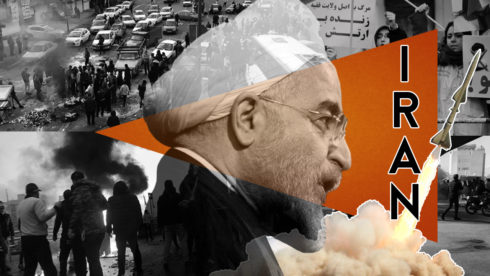
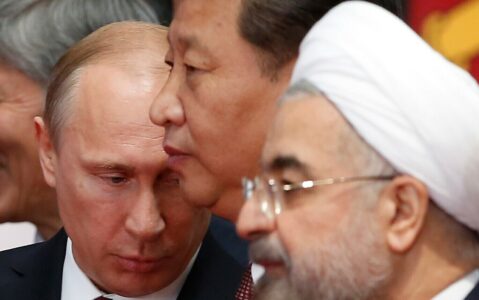
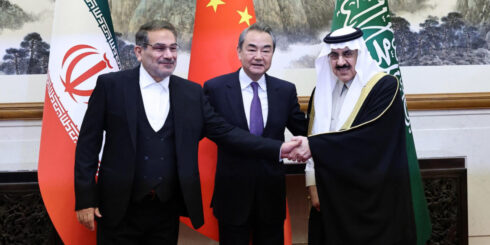
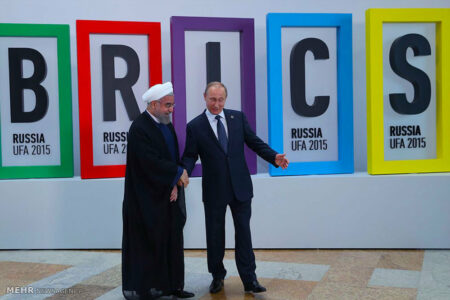
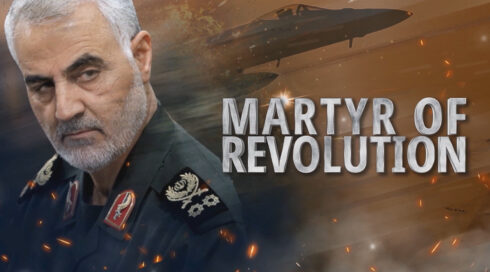
tak veru!!! zrejme málo ľudí to vie. vojna medzi irakom a iránom. potom zvrhnutie vládcu v iráne a následné obsadenie ich konzulátu. na to sa jednoducho nedá zabudnúť. nakoniec sa sadám husaj nechal nahovoriť darebáckym štátom usa a nakoniec aj tak skončil. usa sa nedá veriť!!!
you think iran don’t got icbm’s and nukes? you turnip!
yeah…
i think saudi arabia, egypt, turkey and israel would disagree with this article.
in fact i think they’re laughing at the idiot author’s asinine assertions.
🤣🤣🤣